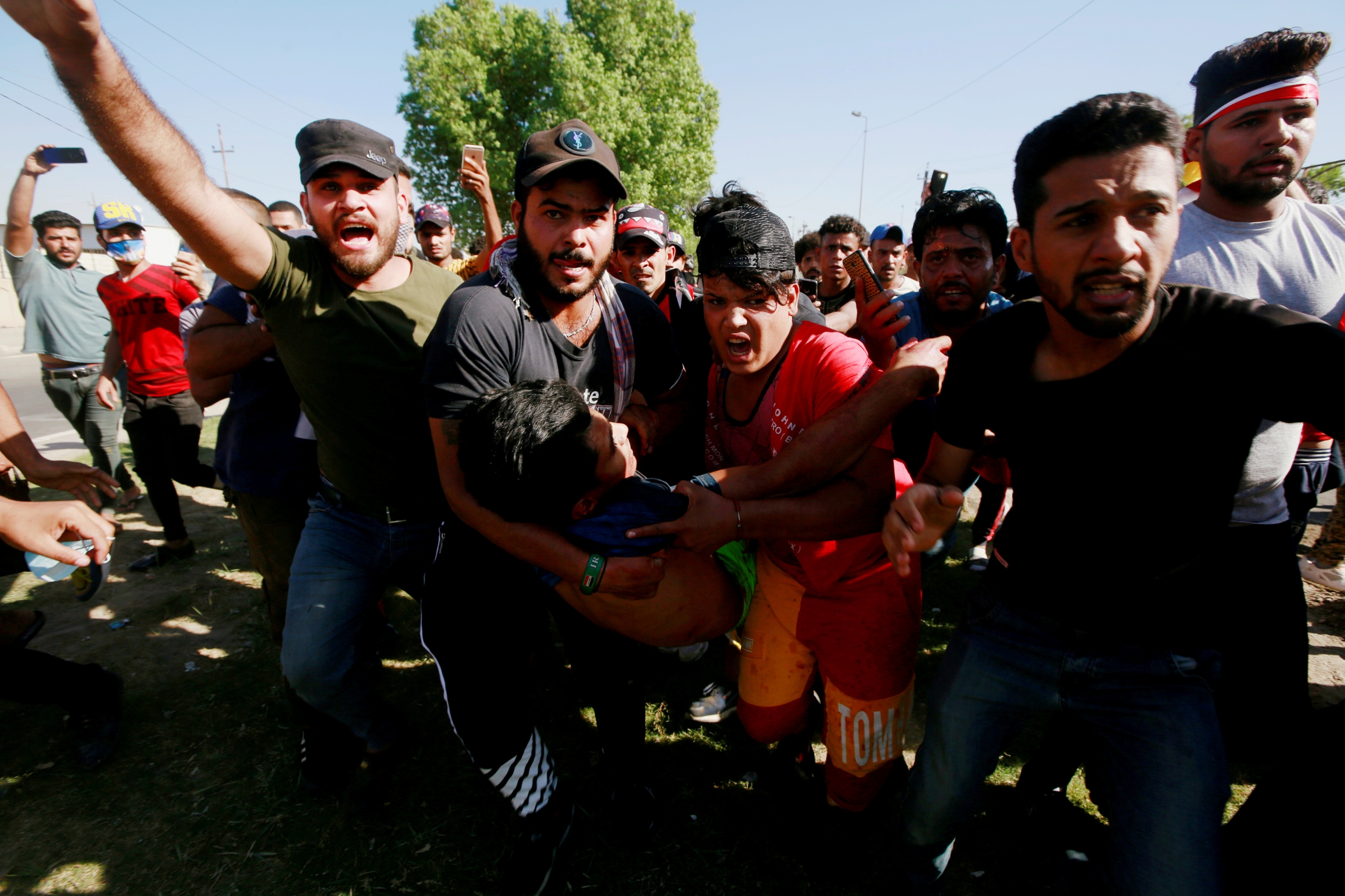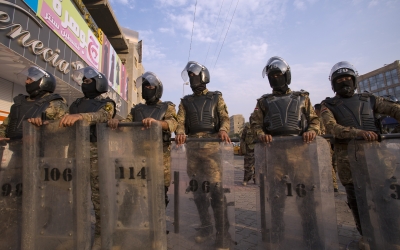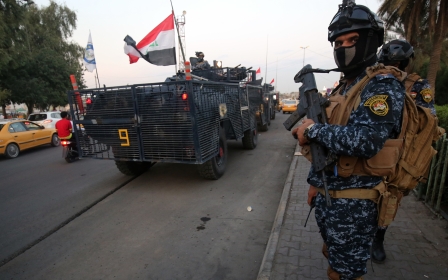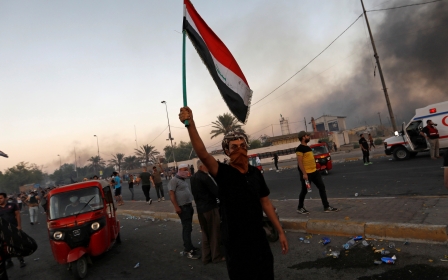Iraq: At least 157 people killed in protests, official inquiry finds

At least 157 people have been killed during anti-government protests in Iraq, a government committee of inquiry said, after more than three weeks of mass protests across the country.
The committee said on Tuesday that the vast majority of the deaths occurred because the Iraqi security forces used excessive force and live fire to stem the protests, Reuters reported, citing the report.
It also found that 111 people, most of whom were protesters, were killed in Baghdad alone, AFP said.
"The committee found that officers and commanders lost control over their forces during the protests (and this) caused chaos," the committee's report states.
"There were no official orders from the supreme authorities to security forces to open fire towards protesters or use live ammunition at all."
New MEE newsletter: Jerusalem Dispatch
Sign up to get the latest insights and analysis on Israel-Palestine, alongside Turkey Unpacked and other MEE newsletters
Mass demonstrations have taken place in the Iraqi capital and in many of Iraq's Shia-majority provinces after Iraqis first took to the streets on 1 October to demand jobs, public services and an end to government corruption.
The protesters were met with live fire by Iraqi security forces seeking to disperse the rallies.
While the protests peaked earlier this month, a countrywide day of demonstrations is expected to take place on Friday.
In an effort to quell the tensions, the Iraqi government said that commanders from across its security forces had been dismissed in the wake of the violent crackdown on demonstrators, AFP said.
It was unclear how many were let go.
The United Nations Assistance Mission for Iraq (UNAMI), in a report of its own released on Tuesday, said that "serious human rights violations and abuses have been committed" and excessive force used against demonstrators.
"Attacks against media outlets and the blocking of internet/social media seem to have been used as tools to deter participation in the demonstrations as well as to repress reporting and activism," the UN mission said.
UNAMI called for "concrete steps to prevent violence and enable future peaceful demonstrations" and stressed "the critical importance of seeking accountability for perpetrators".
Many shot in 'head or chest'
Around 70 percent of the deaths documented by the government committee were caused by bullet wounds "to the head or chest", AFP reported.
At least 149 of those killed were civilians, while eight were members of the security forces killed in the first week of October, the news agency said, citing the inquiry's report.
The Iraqi authorities launched the commission of inquiry to investigate the deaths after initially saying that the country's security forces only used excessive force in a few instances.
The government of Iraqi Prime Minister Adel Abdul Mahdi has been under pressure to account for the violence deployed against the protesters.
In its report, the inquiry blamed some deaths on the security forces, but also mentioned other unidentified "shooters", AFP said.
Former Iraqi Premier Haider al-Abadi, now an opposition leader, condemned the inquiry's findings.
"This report points to disobedience by military and security officials who decided to open fire contrary to their orders," he said in a statement.
"But it does not explain how the 'disobedience' lasted several days without the higher levels of leadership taking control," al-Abadi said.
Iraq's parliament, which has been deeply divided over the protest movement, is expected to meet on Saturday to discuss the demonstrators' demands.
Middle East Eye delivers independent and unrivalled coverage and analysis of the Middle East, North Africa and beyond. To learn more about republishing this content and the associated fees, please fill out this form. More about MEE can be found here.





